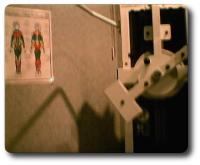
 E have begun to hear more and more about link filtering, selective links,
E have begun to hear more and more about link filtering, selective links, rel='nofollow' and link penalties in recent days. It appears as though sites might be penalised for having certain links associated with them. I am skeptic nonetheless and hereby I present a case study argument as to why no SE could ever (successfully) deploy such an approach.
Think of a Web designer, Mr. X, who has built commercial sites for Mrs. Y and Mrs. Z.
Since Mr. X knows his Web host rather well and wants to centralise his bills, he registers the sites for his clients himself (and possibly ownerships are also attributed to his own business, if not hosted locally). Once done, he does not neglect to add the new sites to his portfolio page. Moreover, he remembers to include a footer in his clients’ sites, which link back to him and potentially attract some clients who liked his work.
Will a search engine penalise X, Y and Z as a consequence? Will they all run out of business because they work together, acknowledging one another reciprocally? Some links are exchanged for the benefit of the visitor (as illustrated above). Cohesiveness and communities are the way our Internet is built and research in IBM has shown that.
The Web is not an isolated set of Web sites. Penalising for cross-site relationships would be a chaotic mistake. In fact, the only way to ever resolve this is to look for off-site links that depart from a ‘community’. But what if these are not relavant? What if all Chinese sites linked to one another because their native language is the same? That’s a community. A country can be a community. Bloggers are a community. You can never penalise for clannish patterns, even if the registrar happens identical.
These communal patterns may have led to questioning of the PageRank system in the past. From an old article on PageRank, for example:
As Gary Stock noted here last May, Google “didn’t foresee a tightly-bound body of wirers. They presumed that technicians at USC would link to the best papers from MIT, to the best local sites from a land trust or a river study – rather than a clique, a small group of people writing about each other constantly. They obviously bump the rankings system in a way for which it wasn’t prepared.”
Although it’s tempting to suggest that bloggers broke PageRankâ„¢ it might equally be the case that the Blog Noise issue is emblematic rather than causal. Blog Noise – in the form of ‘trackbacks’, content-free pages and other chaff – is the most visible manifestation, but mindless list-generators are also to blame for Google’s poor performance.
While on the subject, another article from July presents a few more speculations about such C-block-reliant penalties.
Google’s possible purpose for filtering new links
While Google’s algorithm is not made public, it’s generally thought that Google intends to clamp down on link sales for PageRank and for ranking in the SERPs. Also on Google’s hit list are multiple interlinked sites, existing on the same ip c block, entirely for the purposes of link popularity and PageRank enhancement.
Purchased links tend to be added to a website in medium to large quantities, and often all at one time. Large quantities of incoming links, appearing all at once, might indeed trip a filter.
Google could suspect a high volume of links added at one time to be purchased, and therefore suspect. The possibility would be in keeping with Google’s strongly suspected policy of discouraging link sales. After all, Google’s guidelines point out that any type of linking schemes are against its policies.
The ip c block is the third series of numbers in the identity of an ISP. For example, in 123.123.xxx.12 the c block is denoted as xxx. Google is able to readily identify those links.

 RIC Scmidt, who is the CEO of Google, speaks out in defence of Google Print. Goole Print is the controversial initiative to scan literature, infringing copyrights in the process. The intended service, titled Google Print, is to provide surfers with instant and comprehensive coverage of books from the shelf.
RIC Scmidt, who is the CEO of Google, speaks out in defence of Google Print. Goole Print is the controversial initiative to scan literature, infringing copyrights in the process. The intended service, titled Google Print, is to provide surfers with instant and comprehensive coverage of books from the shelf.





 Filed under:
Filed under: 
 E have begun to hear more and more about link filtering, selective links,
E have begun to hear more and more about link filtering, selective links,  While we should all know that it is science that drives innovation, money gets spent where the long-term future is uncertain. Television and advertisements that accompany its existence shape up a tremendous industry. However, it is a well-established fact that economy cannot safely propagate to the future (Wall street and the ‘bubble effect’) whereas exploration and new discoveries are capable of putting the States at the forefront. This all comes at a very sensitive time when the whitehouse issues budgetary cuts on science and research while creationism and defence (or contrariwise armament) are better catered for. I am truly concerned.
While we should all know that it is science that drives innovation, money gets spent where the long-term future is uncertain. Television and advertisements that accompany its existence shape up a tremendous industry. However, it is a well-established fact that economy cannot safely propagate to the future (Wall street and the ‘bubble effect’) whereas exploration and new discoveries are capable of putting the States at the forefront. This all comes at a very sensitive time when the whitehouse issues budgetary cuts on science and research while creationism and defence (or contrariwise armament) are better catered for. I am truly concerned.
 ODAY I decided to re-prioritise a few hobbies and activities in my life. Thus far things have gone rather well, but I was at times susceptible to pressure and found it hard to cope with the amount of work that came my way.
ODAY I decided to re-prioritise a few hobbies and activities in my life. Thus far things have gone rather well, but I was at times susceptible to pressure and found it hard to cope with the amount of work that came my way.
 NLY a few days ago, somebody had me aware of the
NLY a few days ago, somebody had me aware of the  have just become aware of
have just become aware of 